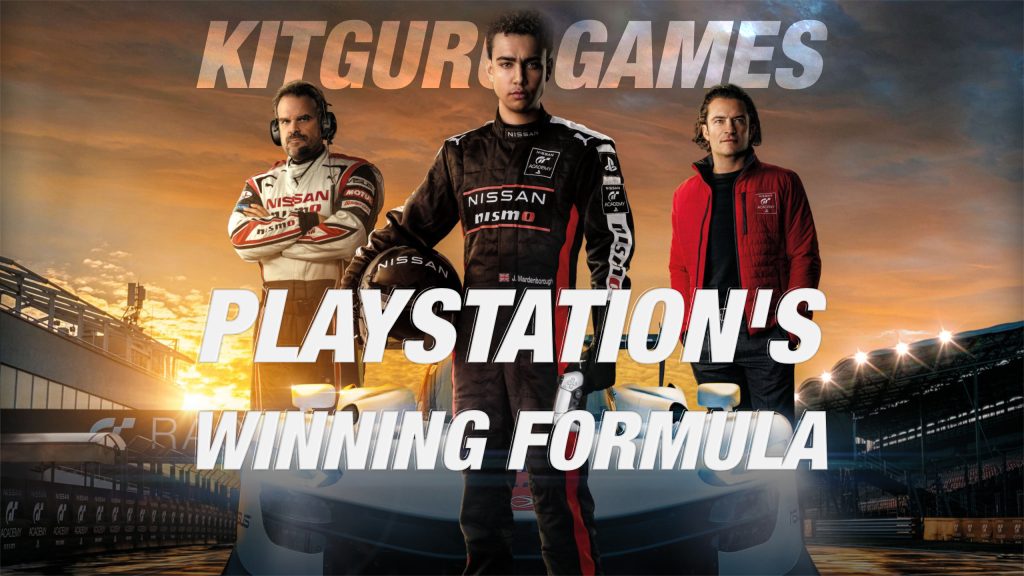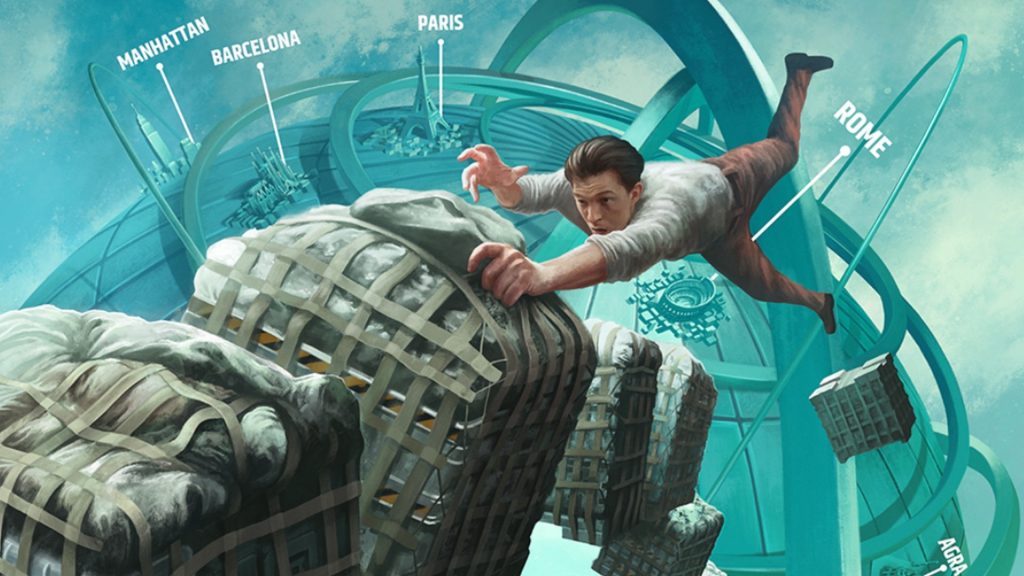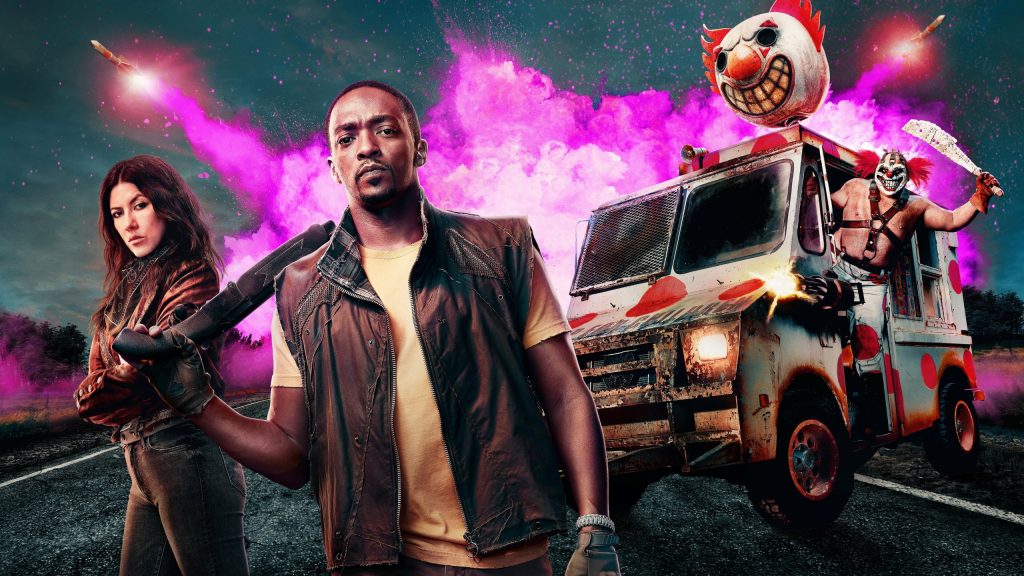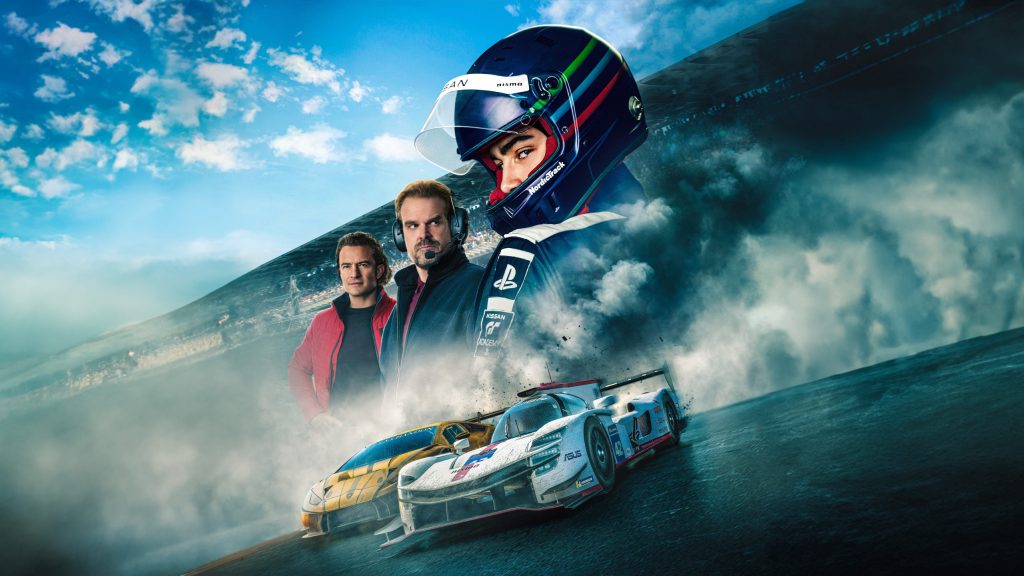For the past couple years Sony has been taking a renewed approach when it comes to utilising their many current and past Intellectual Properties, with the PlayStation console manufacturer expanding to a transmedia strategy. First starting with the Uncharted movie back in 2022, up until PlayStation Productions’ most recent cinematic release (Gran Turismo), these adaptations have – with one obvious exception – been received both critically and commercially in a somewhat dim light. While a majority of these projects have not quite set the world on fire, I don’t actually think they were meant to.
Of course, all these different films and shows aren’t being made just for the sake of it. Sony has an overarching goal in mind, and that goal is to get non-PlayStation fans to buy a PlayStation; get pre-existing PS5 owners to expand outward and try their many variety of different first-party offerings – and last but also least – get core fans of each IP to double dip on these new shows/films. Sony has crafted this strategy, this formula, and it is working.
The Plan
Gran Turismo (or ‘Gran Turismo: Based on a True Story’ in some regions) is the 4th and latest project to come out of Sony’s PlayStation Productions. Founded in 2019 this new initiative would see popular PlayStation IPs being offered out to a number of different distributors – depending on what platform they deem most appropriate. So far, 9 projects in total have been announced as part of this plan with 4 having now been released, those being:
- Uncharted – 2022 (Theatrical Release)
- The Last of Us – 2023 (HBO)
- Twisted Metal – 2023 (Peacock)
- Gran Turismo – 2023 (Theatrical Release)
The remaining 5 projects which have been announced – though have had pretty much no details shared – are:
- Days Gone (Film)
- Ghost of Tsushima (Film)
- Gravity Rush (Film)
- God of War (Amazon)
- Horizon (Netflix)
Sony have clearly not been choosing to release all their different adaptations through a whole modicum of mediums for no reason. While we could hazard an educated guess as to why each of the different unreleased projects have been selected to premiere on their respective platforms, it makes more sense to look at the projects which have come out and in particular PlayStation Production’s most recent release – Gran Turismo. Before going into all that however, I will briefly touch on the other three projects.
Uncharted
Uncharted made sense as the kick-off for this new venture. Nathan Drake and Uncharted as a whole amassed millions of fans over the course of its two-generation run. While PlayStation doesn’t necessarily have a mascot, Drake’s charming smirk and endless quips were always front and centre when it came to marketing PlayStation as a whole. What’s more, the franchise is pretty much just a reskinned Indiana Jones – a film series which had managed to create an excellent Summer Blockbuster type of feel and formula. Did Uncharted bust the block? Nope, but it was a pretty decent start, especially for being the first release to come out of PlayStation Productions. Even so, the film managed to make over $400 million at the box office during its run, cracking into the top 15 highest grossing films of the year. And again, I don’t think it was meant to make money anyway.
While of course it did make money, I think the purpose of the Uncharted film was to keep current fans of the dormant franchise satisfied during this down period while also introducing new people to the series by proxy of it being a big theatrical release starring Tom Holland. By the time all those new converts will have played through the prior 5 (technically 6) games, a new rebooted Uncharted should be just about coming out of the oven – all prepped and ready to sell millions of copies.
The Last of Us
HBO’s The Last of Us was of course the previously-mentioned exception to the critical reception of PlayStation Productions’ current output. This adaptation clearly had the most direct attention given to it, with Neil Druckmann himself coming back to work personally on the show alongside the multi-award-winning Craig Mazin. And of course, as is in the name itself, the show was released by HBO – undeniably the highest quality and most prestigious TV network there is. What’s more, The Last of Us tells a slow and intimate story, one which requires time and space to allow for the quiet moments to shine through. There was no better choice than HBO and the numbers have proven it. While a critical darling, the show was also huge for HBO, amassing 24 Emmy nominations in total whilst also breaking records with an average of 32 million viewers per episode. None of this is that surprising however; The Last of Us is PlayStation’s golden goose.
Despite having excellent gameplay (especially in Part II), The Last of Us has always been known and appreciated most for its story, and so being able to present this narrative to dozens of millions of new people in a carefully crafted and creator-approved manner helped the story of Ellie and Joel to be experienced by those who will likely never pick up a DualSense controller – and that’s okay!
While undoubtedly a show that any adult can enjoy, HBO’s The Last of Us truly entered the mainstream, seeing mums and dads; older sisters and brothers; your boss at work and countless others who have – and never will – play any video games (outside of maybe owning a Nintendo Wii) get the opportunity to check out this masterpiece. HBO’s The Last of Us truly was a show for everyone, and it succeeded in doing just that while also drawing more eyes than ever to any and all future PlayStation Productions.
Twisted Metal
The next project to launch was the adaptation of Twisted Metal, being distributed by Peacock. While certainly the most low-profile of all the releases so far, the reintroduction to this dead franchise managed to subvert expectations by being a genuinely fun time, despite its partial departure from the source material. Unless you’re a long-time PlayStation fan, you are unlikely to have heard of the name Twisted Metal. Similarly, the brand has no real cache within the mainstream.
With Sony set to soon bring back this franchise in video game form (at least according to leaks and rumours), tying it in with the Peacock show makes a whole lot of sense. No one really knows what Twisted Metal is nowadays, and even those who do are operating on games which for many peaked during the PS2 era. Releasing a TV show first not only brings back the long-dormant IP in a more casual way, but it also helps to give long-time fans of the games an insight into the future of the franchise.
The release of Twisted Metal in this manner served as a low-risk medium reward strategy – and so far it seems to have worked. While early promotional material did not seem to resonate with fans, come the show’s eventual release last month many critics and fans alike ended up having a swell time, calling it “a screen-popping, wickedly funny, seriously twisted and action-jammed adventure that leaves us wanting more”. While not to say that Twisted Metal doesn’t have any fans in this day and age, the success of this new show will undoubtedly lead to many first-timers trying out the next game when it finally releases – perhaps sometime around the show’s second season.
Gran Turismo
Finally, we come to the main event. Gran Turismo is available to watch in cinemas right now, and while the critical consensus was less-than-stellar – with many calling it a glorified PlayStation ad – the audience reception could not be further from this. With a 98% audience score on Rotten Tomatoes, it is quite clear that those who review films professionally missed the mark with what this film is meant to be. Does it feature a bunch of product placement? Yes, but also, in this context, PlayStation logos being slapped all over the place makes sense. It is based on a true story after all, and so it would be odd and somewhat disingenuous for Sony to omit the placement of PlayStation in the empowering story of Jann Mardenborough and his rise to motorsport racing glory.
All that aside, as with all the prior adaptations, Gran Turismo was developed with a purpose in mind – doing a reversal of the film itself, and getting millions of non-racing fans to get into the genre. I enjoy racing games, though like many, my preference historically has been more tied with the likes of Need for Speed and other arcade-style racers. I never understood (nor did I try to) the controlled chaos required to succeed in a motorsport race. It always seemed as though playing a game like Gran Turismo simply put up too many barriers and limitations, forcing me to take on certain routes and manoeuvres – with any deviances being penalised.
The Gran Turismo film helped me to not only understand why people love the sport (and game series), but to visualise it in a way that ultimately saw me leave the cinema wanting nothing more than to pick up my controller and play a bunch of Gran Turismo 7 – hell, I would have hopped in a car and taken it for a spin if I could drive. But the point I’m trying to make is that the Gran Turismo film made me finally understand what the 80 million+ players who have enjoyed the series over its 25+ year history knew for decades.
This ability by the film to translate the thrill, excitement, tension and ‘controlled chaos’ of a motorsport race can be understood by pretty much anyone. My sister, who can’t even seem to wrap her head around the idea of dual analogue sticks, in seeing the film enjoyed it on its own merits. Polyphony Digital and in particular Kazunori Yamauchi is the brainchild behind the Gran Turismo series from its very inception. While it is of course a franchise designed to sell, Yamauchi himself makes the GT games for the love of cars. The Real Racing Simulator – as it is known – helped showcase and share his love of racing cars with 80 million people. The idea behind the adaptation is to continue this further. Whether or not you end up buying GT7 as a result of this film, the way in which it manages to carefully introduce you to the world of motorsport racing means that as long as you find yourself having a newfound love for the sport, then ‘Gran Turismo: Based on a True Story’ has done its job.
Conclusion
Each new project released under PlayStation Productions has done so with a particular set of goals in mind, and in my opinion all these goals have so far been met. If in watching any of these adaptations, you find yourself not drawn to or interested in them, that’s okay! It just means that the film/show was not for you (and likely wasn’t made for you). That said, in viewing these projects from a distant lens, it’s quite clear that Sony has a plan in mind – and that plan is working.
Discuss on our Facebook page HERE.
KitGuru says: What do you think of the adaptations released so far? Which is your favourite? Do you plan on watching Gran Turismo? Let us know down below.
 KitGuru KitGuru.net – Tech News | Hardware News | Hardware Reviews | IOS | Mobile | Gaming | Graphics Cards
KitGuru KitGuru.net – Tech News | Hardware News | Hardware Reviews | IOS | Mobile | Gaming | Graphics Cards







